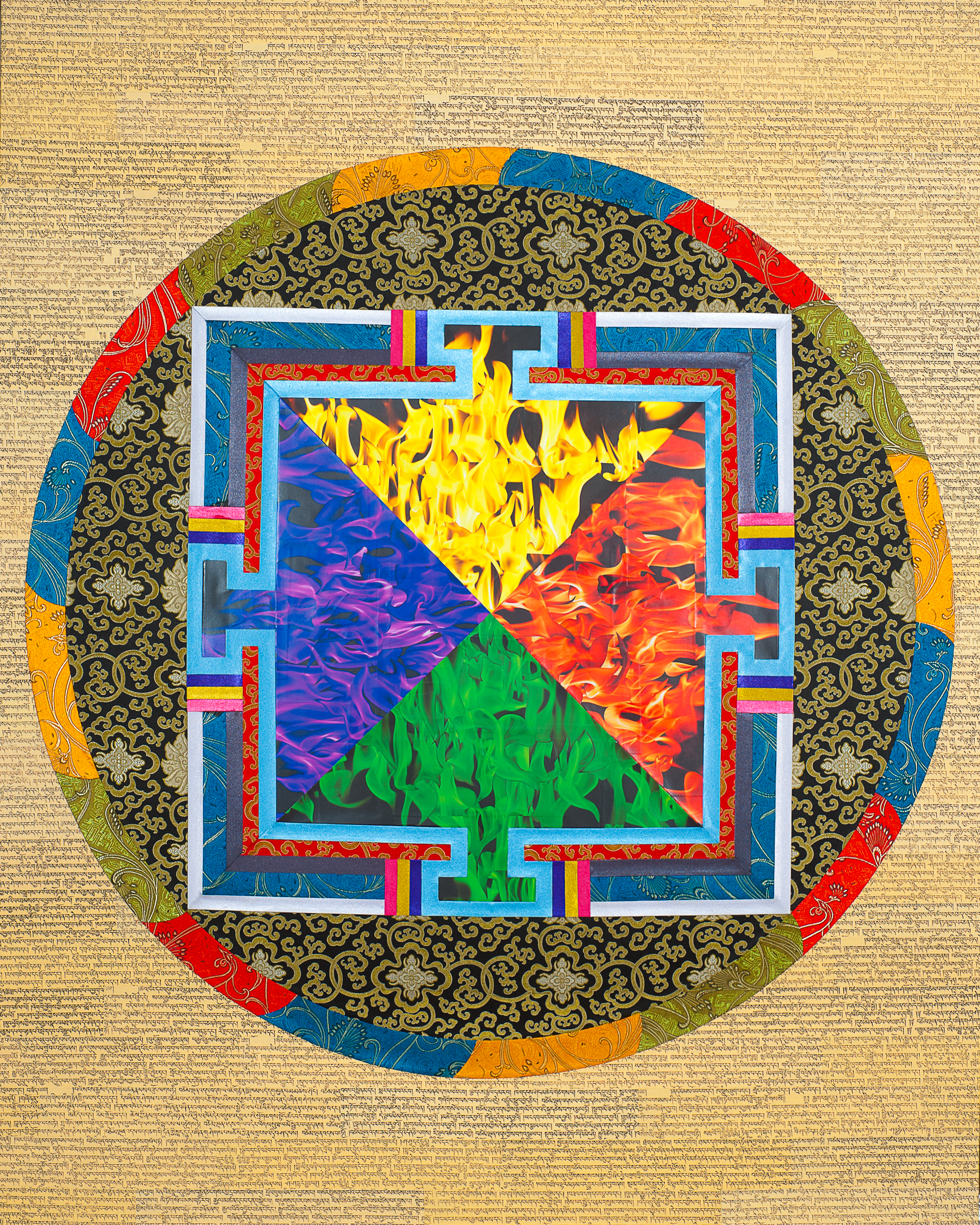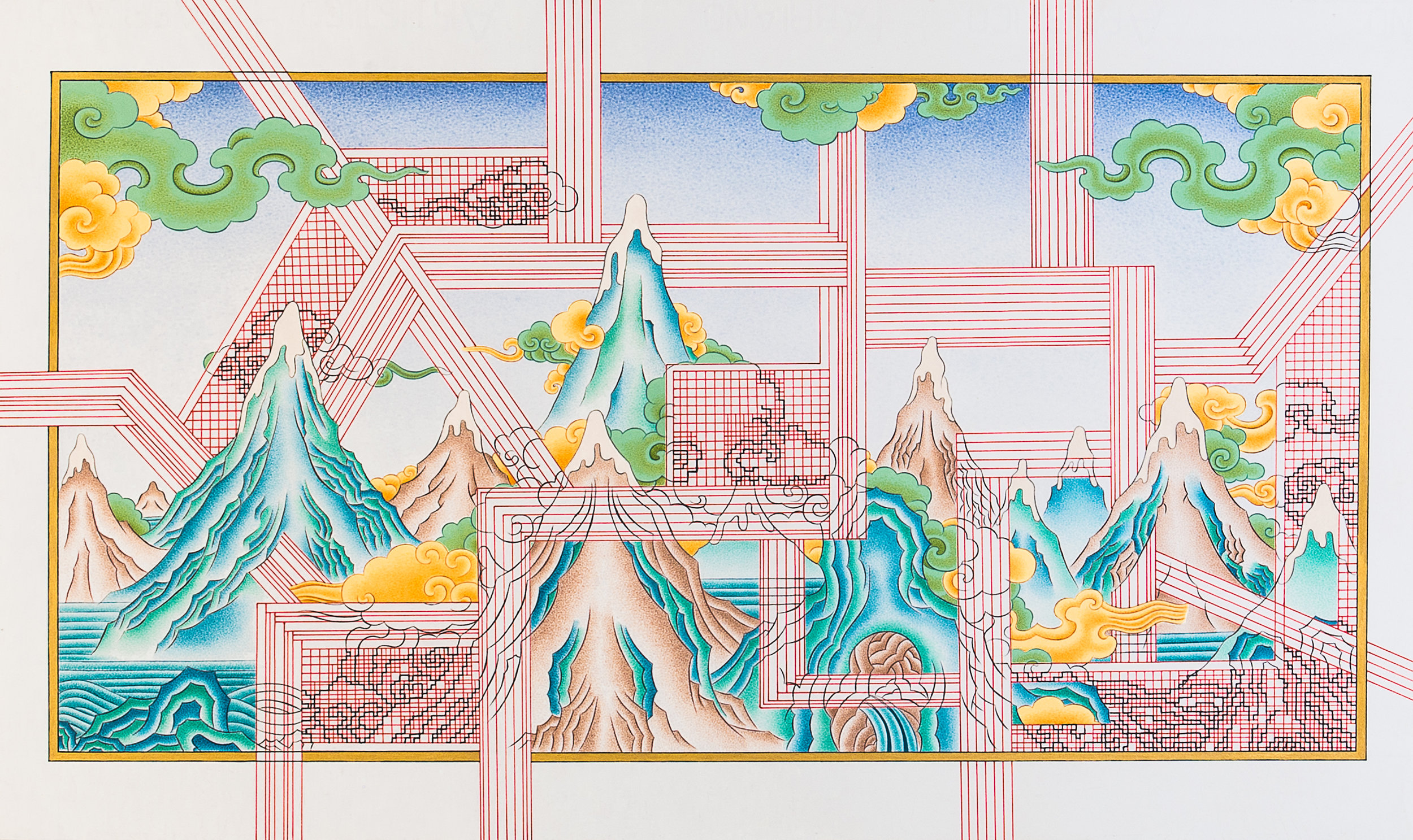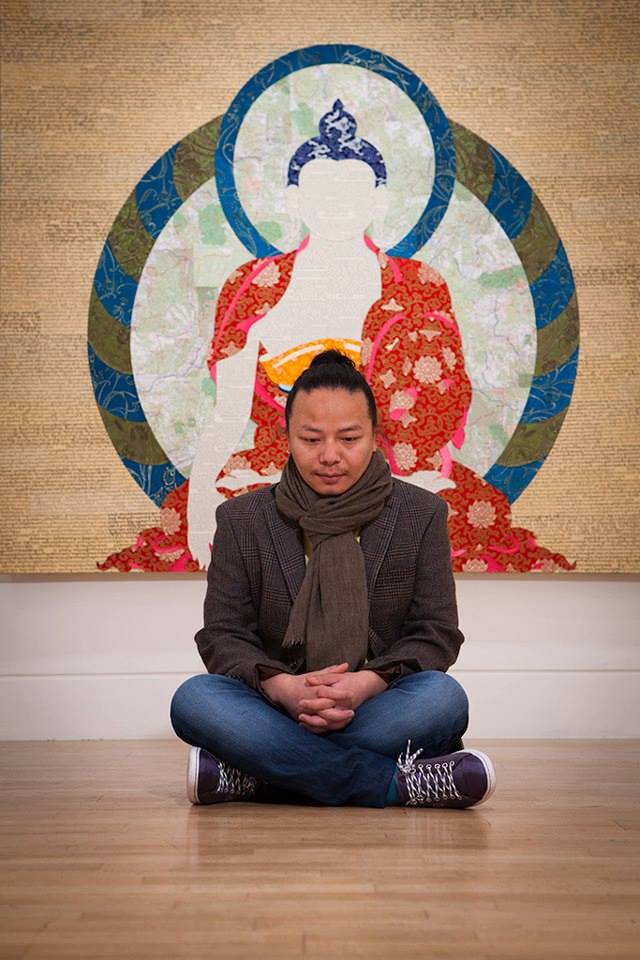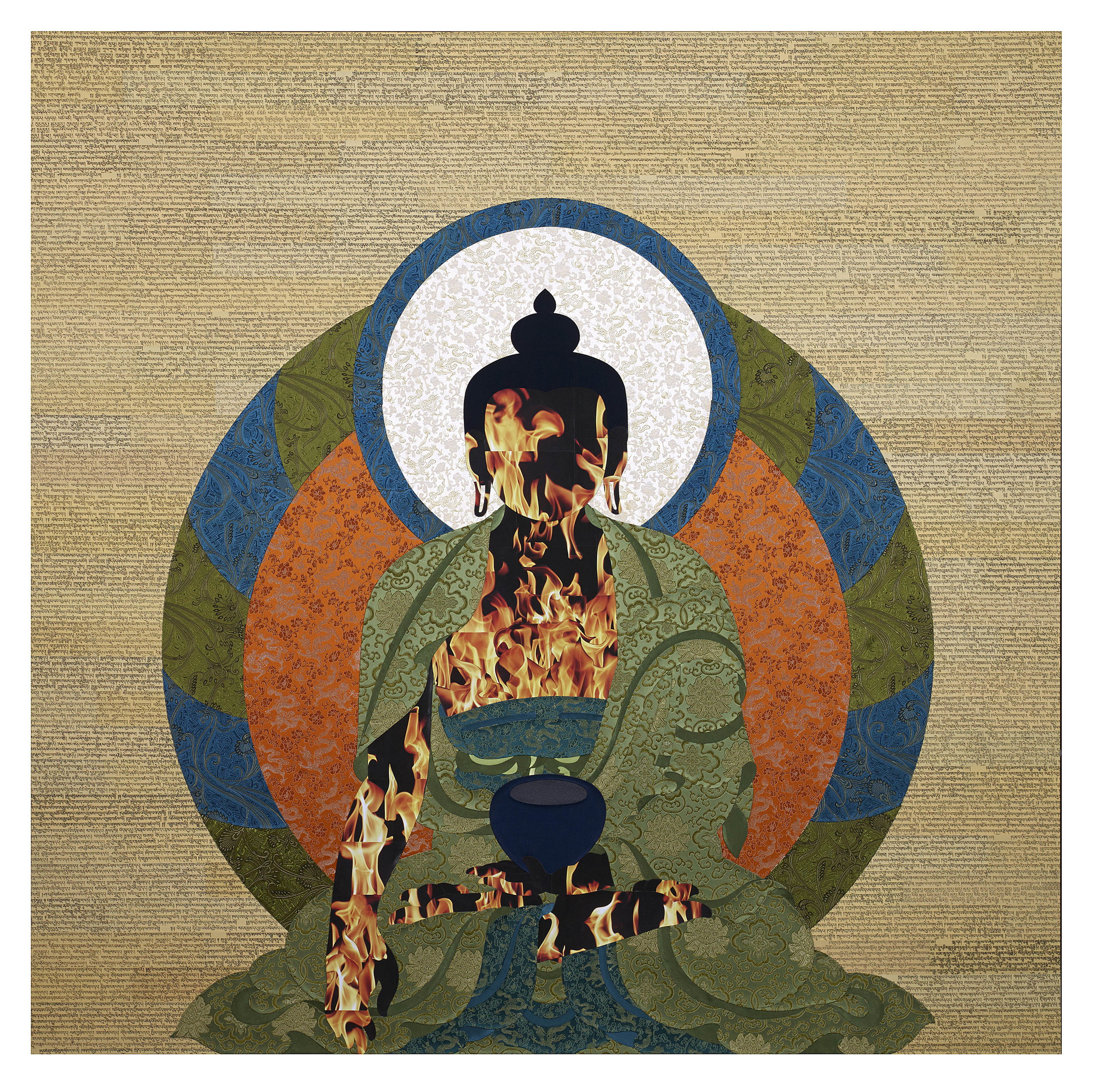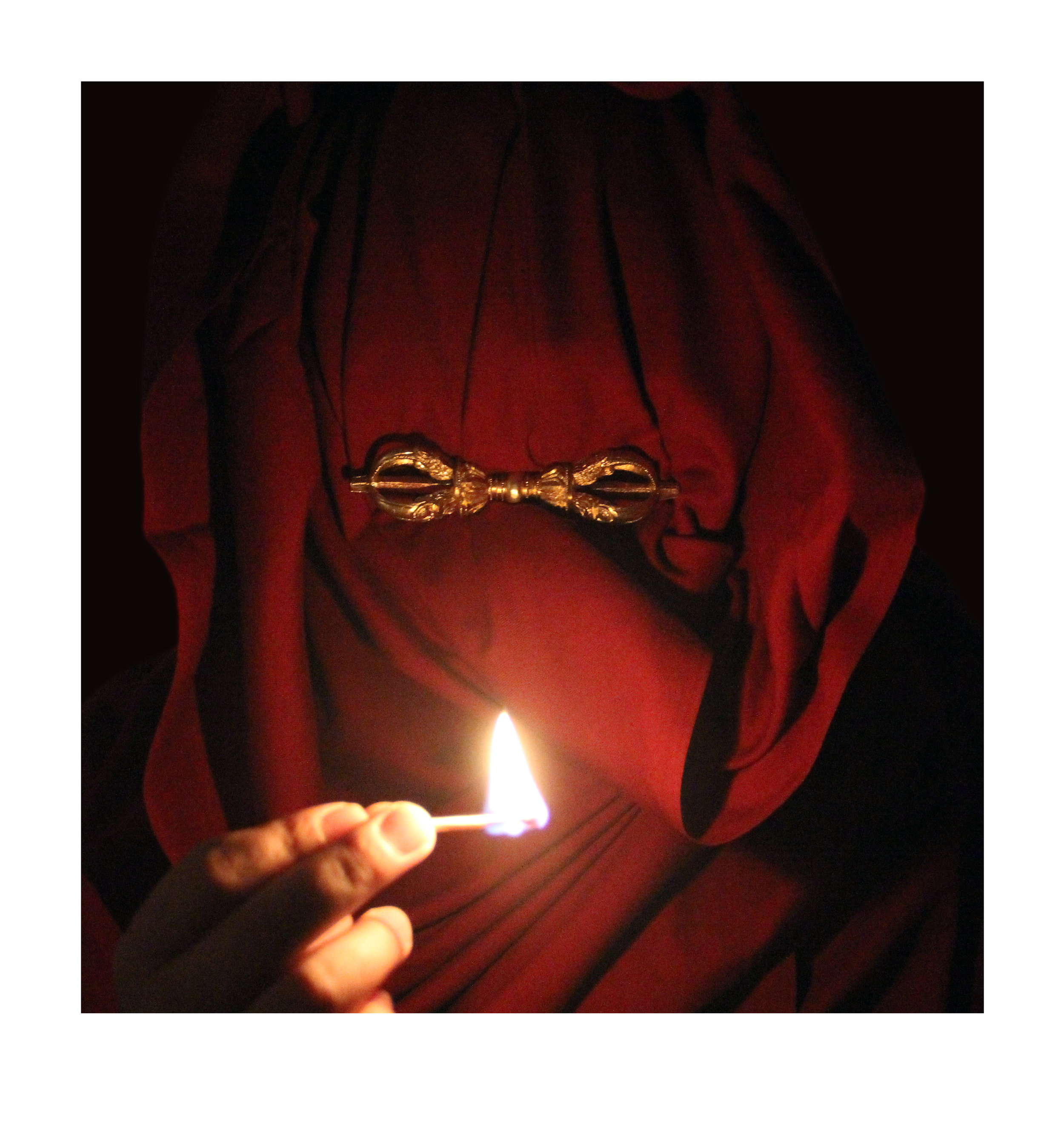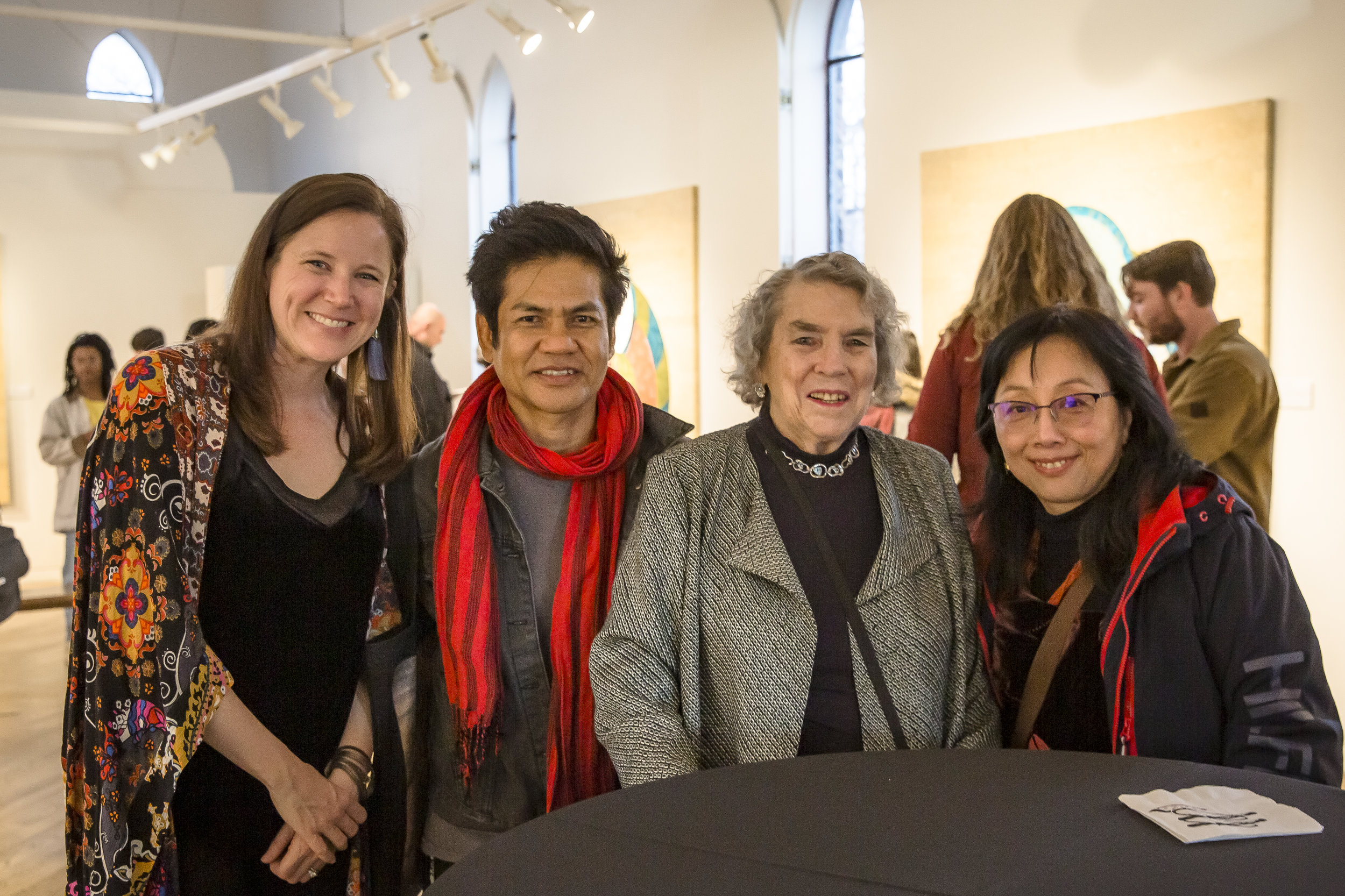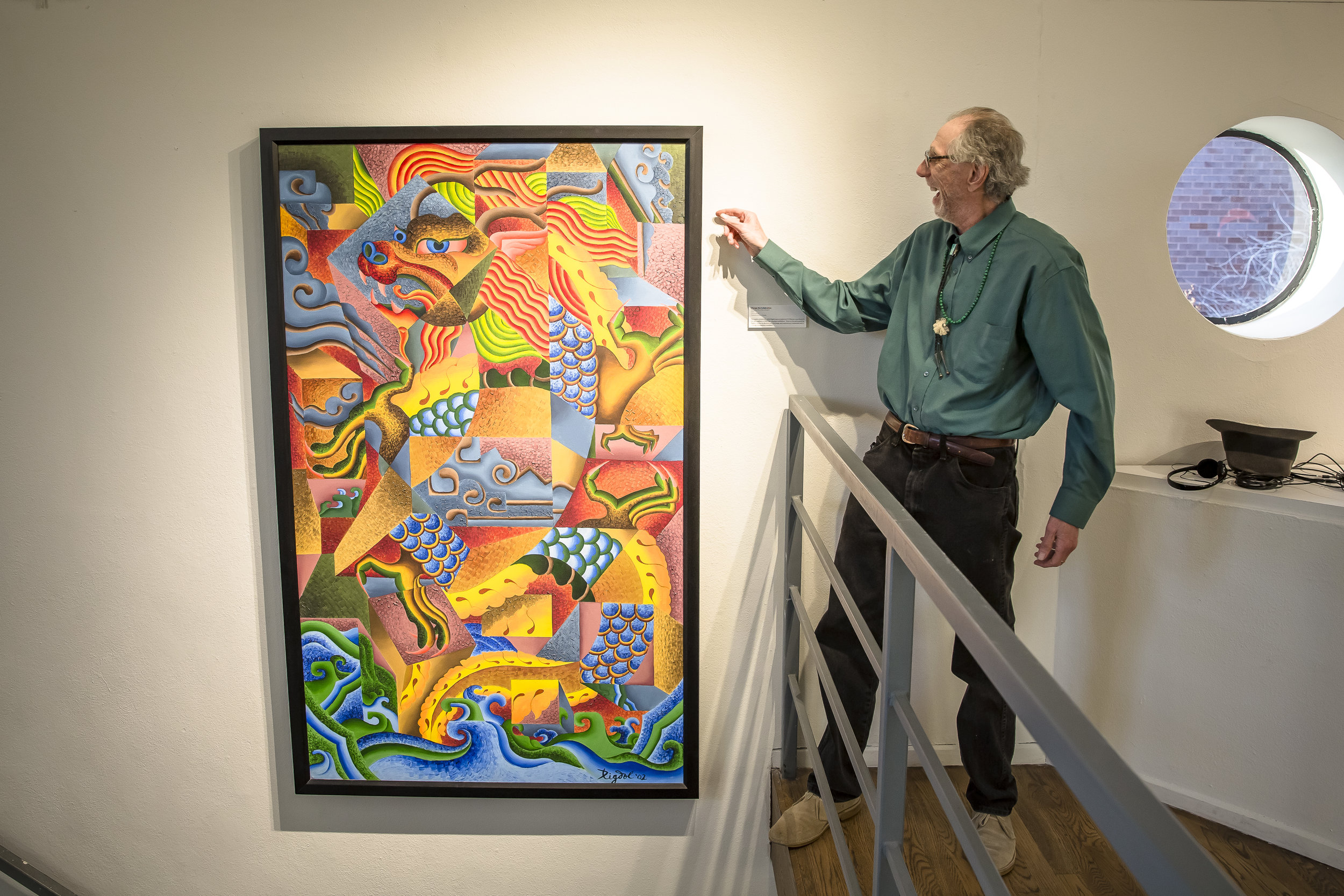Tenzing Rigdol: My World is in Your Blind Spot
Artist, activist, and poet Tenzing Rigdol (’05, Visual Arts) returns to the University of Colorado Denver for his first U.S. solo exhibition, Tenzing Rigdol: My World is in Your Blind Spot.
March 21,2019 - June 21,2019
Tenzing Rigdol’s My World Is in Your Blind Spot (2014)—the highlight and namesake of this exhibition—is shown for the first time in the United States at the Emmanuel Art Gallery on the University of Colorado Denver campus. The work is a masterpiece, encompassing Rigdol’s ability to use religious imagery in a visually provocative manner, all while incorporating personal and political components that bring light to difficult and controversial topics. On five large panels stretching across thirty horizontal feet, Tenzing Rigdol’s imposing buddha silhouettes greet the viewer in their recognizable cross-legged seated positions—a posture often associated with meditation and peace—and with a stunning visual effect enhanced by the use of silks and fire imagery. The work brings vivid colors and interesting patterns to the eye, but the fires seemingly emerging from the bodies of the buddhas are also direct acknowledgements of the 155 Tibetans who have self-immolated since February 27, 2009. In an ultimate act of sacrifice, these Tibetans set themselves on fire with the hope of bringing attention to the oppression currently faced by their society under the laws of the Chinese government. And yet, the buddhas seem peaceful, even welcoming in their balanced postures, their calming presences perfectly harmonized by an artist well-versed in representing both destruction and construction. The contradictions on display in this exhibition are meant to challenge the viewer. They are simultaneously safe and subversive: beautiful to look at, devastating to comprehend. They are emblematic of the ambitious imagery created by Tenzing Rigdol, a Tibetan artist who has never set foot in Tibet.
Tenzing Rigdol, Artist and Alumni
Tenzing Rigdol was born in 1982 in Kathmandu, Nepal, after his parents fled occupied Tibet in the late 1960’s. Rigdol and his family were granted political asylum in the USA in 2002. During these formative years he studied Tibetan sand painting, butter sculpture and Buddhist philosophy in Nepal. In 2003 he earned a diploma in traditional Tibetan thangka painting and in 2005 he was awarded a BFA in Painting and Drawing and a BA in Art History at the University of Colorado Denver, USA. Rigdol is also an accomplished poet, having published three collections of poetry, “R”–the Frozen Ink (2008), Anatomy of Nights (20011), and Butterfly’s Wings (2011), printed by Tibet Writers.
Rigdol has exhibited internationally and his artworks are included in public and private collections around the world. In 2011 his widely reported Our Land, Our People involved the covert transportation of 20 tons of soil out of Tibet, through Nepal, to Dharamsala. There, displaced Tibetans were given the opportunity to walk on their home soil once again. The journey to smuggle the soil across across three borders is documented in Bringing Tibet Home, a documentary directed by Tenzin Tsetan Choklay, that was awarded the Young European Jury Award (Prix du Jury de Junes Européens) at the 27th edition of FIPA (Interantional Festival of Audiovisual Programmes). In 2014, Rigdol’s work Pin Drop Silence: Eleven-Headed Avalokitesvara was the first work by a contemporary Tibetan artist to be acquired by the Met in New York. Rigdol’s legacy as a student in Colorado inspired the current exhibition on the CU Denver campus.
—Guest Curator Sarah Magnatta, PhD, and Rossi & Ross
For information to support the Emmanuel Art Gallery and the student’s experience, please email Jeff Lambson, jeff.lambson@ucdenver.edu
THIS EXHIBITION IS MADE POSSIBLE BY THE GENEROUS SUPPORT OF:
Emma C. Bunker and the Bunker Family
Rossi & Rossi, London and Hong Kong
Sammy Lee, collective SML | k
McDonald Automotive Group of Littleton, CO
Colleen Fanning
CU Denver Asian American Student Services


